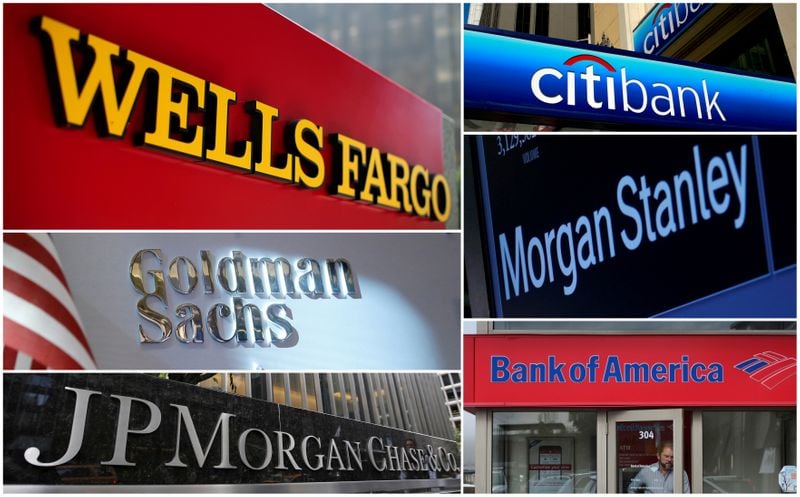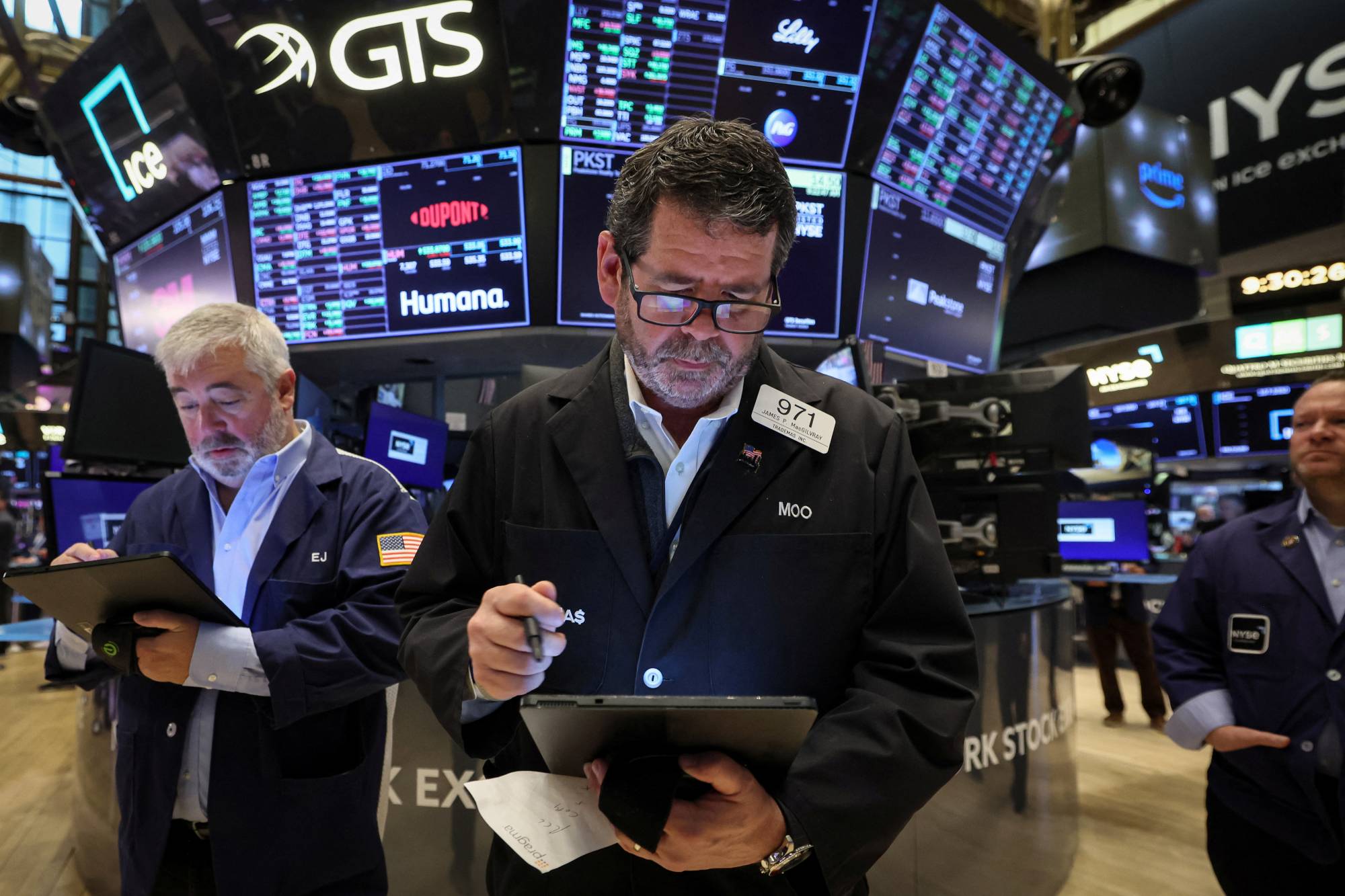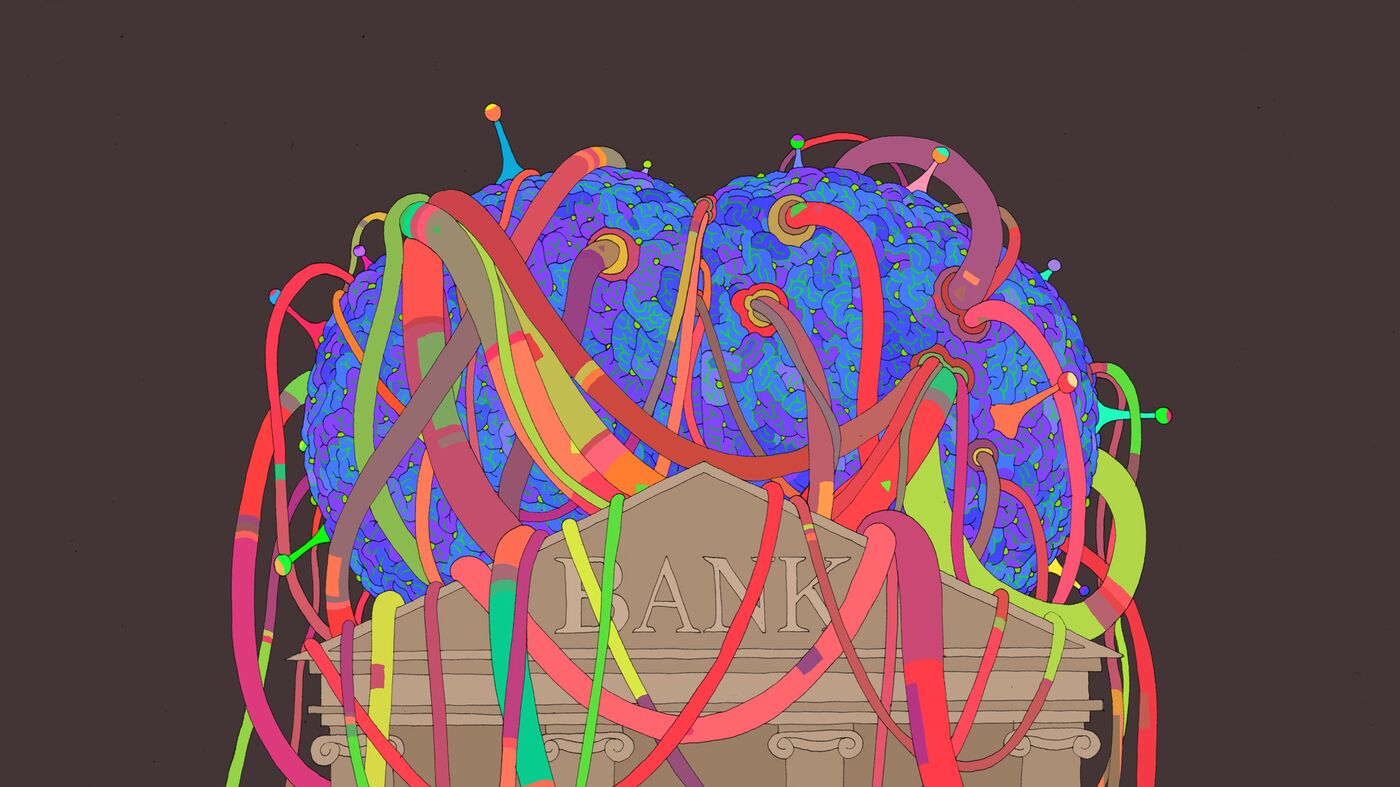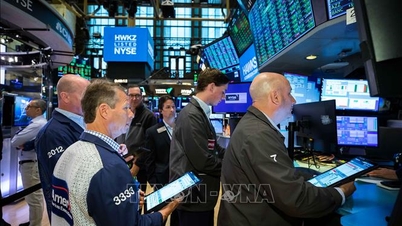Artificial Intelligence (AI) holds great promise for banks as it makes day-to-day operations more efficient. Complex analysis and risk modeling are also made easier and faster with this tool.
According to Business Insider , in fact, AI has been revolutionizing Wall Street for many years now, when most transactions have been and are being done by algorithms. By processing the information received, analyzing and making decisions to buy or sell, algorithms are helping to perform 60 - 75% of daily transactions on Wall Street, the financial center in New York City (USA). However, the question now is whether this rate can be higher and whether AI will completely take over human work in finding profits?
AI application race
Wall Street is expecting AI to have a major impact on financial trading. According to a survey by JPMorgan, one of the oldest financial services firms in the world , headquartered in New York, up to 53% of traders believe AI or machine learning will be the most influential technology on trading in the next 3 years (compared to 25% in 2022).
According to new data from Evident Consulting (USA), at the most developed banks, about 40% of recruiting positions are related to AI such as data and quantitative engineers, administrators...
Eigen Technologies, a New York-based technology company that provides AI services to banks such as Goldman Sachs and ING, said AI requests from banks increased fivefold in the first quarter of 2023 compared to the same period last year.
Alexandra Mousavizadeh, CEO and co-founder of Evident, said that the release of ChatGPT by the US company Open AI in November 2022 has made bank leaders more aware that AI is a game-changer in the banking sector because it offers many prospects. "The cost of AI talent has increased significantly. An AI race has begun," Mousavizadeh emphasized.

More and more Wall Street banks are adopting AI technology.
A typical example of using AI in the financial and banking sector is the development of a product by Germany's largest private banking group, Deutsche Bank, that can analyze whether their clients' investments are at risk or not. The bank also uses this tool to find funds, stocks and bonds that match the needs and desires of each client.
Kirsten Anne Bremke, Deutsche Bank's global head of data solutions, is enthusiastic about the combination of artificial intelligence and human intelligence.
The Dutch multinational banking and financial services group ING is using AI to screen potential defaulters. Meanwhile, Morgan Stanley is in the race to use AI when testing new AI technologies, using Large Language Models (LLM). Morgan Stanley currently owns a patent for a model that uses AI and machine learning to identify information from the US Federal Reserve (Fed) showing strict or dovish policies, thereby helping them predict monetary policy measures.
JPMorgan has similar plans. In a patent filing in May, the bank said it had created a ChatGPT-like product that could help investors pick the right stocks. Evident data shows that through global advertising, JPMorgan has recruited 3,651 AI-related positions between February and April, nearly double the number of rivals Citigroup and Deutsche Bank.

Traders at the New York Stock Exchange
Steven Burrows, a director at the multinational law firm Fieldfisher, said banks are using AI to offer better hedging solutions, through tools such as interest rate swaps and equity derivatives, allowing them to offer better pricing to clients. Meanwhile, Yuriy Nevmyvaka, head of machine learning at Morgan Stanley (USA), said: "Every business, trading desk and investment team is trying to understand AI deeply."
US bank Wells Fargo is using large language models to help determine what information customers need to report to regulators and help them improve their business processes. Meanwhile, French bank BNP Paribas is using chatbots to respond to customers and using AI to detect and prevent fraud and money laundering. Similarly, Cast, the AI monitoring and analytics tool of French bank Societe Generale, uses its computing power to scan for potential misconduct in the capital markets.
Governments race to find ways to regulate AI tools
Transparency and efficiency
The promotion of AI application in the financial and banking sectors, although bringing positive changes, also poses significant challenges for the financial market: from the risk of job loss to the transparency and efficiency of this technology.
First, the risk of future job losses is high. Goldman Sachs analysts fear that 300 million full-time jobs globally could be automated by AI. That figure could include 35% of the business and financial sector in the US.
Billionaire Warren Buffett, Chairman of Berkshire Hathaway Inc., expressed concern at the company's annual general meeting on May 6: "When something can do all kinds of jobs, I feel a little worried. Because I know we don't have the ability to reverse this development." Sharing the same view, CEO Brian Moynihan of Bank of America assessed that AI can bring great benefits and help reduce many tasks, but it is important to understand how the workflow and decision-making are done.

Although AI application has positive impacts, it also comes with challenges.
Second, transparency is an issue that needs special attention when expanding the use of AI in the banking and finance sector. Banks are obliged to conduct transactions and make trading decisions based on authentic sources of information. According to expert Anne Beaumont, partner of the law firm Friedman Kaplan Seiler Adelman & Robbins LLP (USA), once the use of AI is expanded, it will be difficult to explain to customers and managers about what data the bank has based its decisions on and whether the use of that data is valid or not.
Furthermore, according to Professor of Computer Science and Technology Alan Blackwell at the University of Cambridge (UK), banks need to use big data from many different sources to "train" AI tools and many problems will also arise from that.
Third, the cost of developing and operating AI tools is very expensive. Eigen Technologies founder and CEO Lewis Z. Liu said the estimated cost of using a large language model to answer customer questions is about $14 per question, while the cost of having a lawyer answer is only $6 per question.
Although the role of AI is not new in Wall Street transactions, many analysts are talking about a future where AI can completely replace humans in financial transactions and bring in profits, especially in the context of AI exploding and being widely applied. Today, banks are in a "full of excitement" race to develop and apply AI to increase business efficiency, thereby promoting rapid changes in the banking and finance industry in the near future. However, consulting organizations all believe that banks need to clearly identify which areas AI will create outstanding value in order to have a clear AI application strategy. In addition, it is necessary to focus on training employees, recruiting more experts, and having a new risk management framework to deal with AI-related issues, unclear policy environments in AI application, as well as issues related to data accuracy.
Source link





























































































Comment (0)